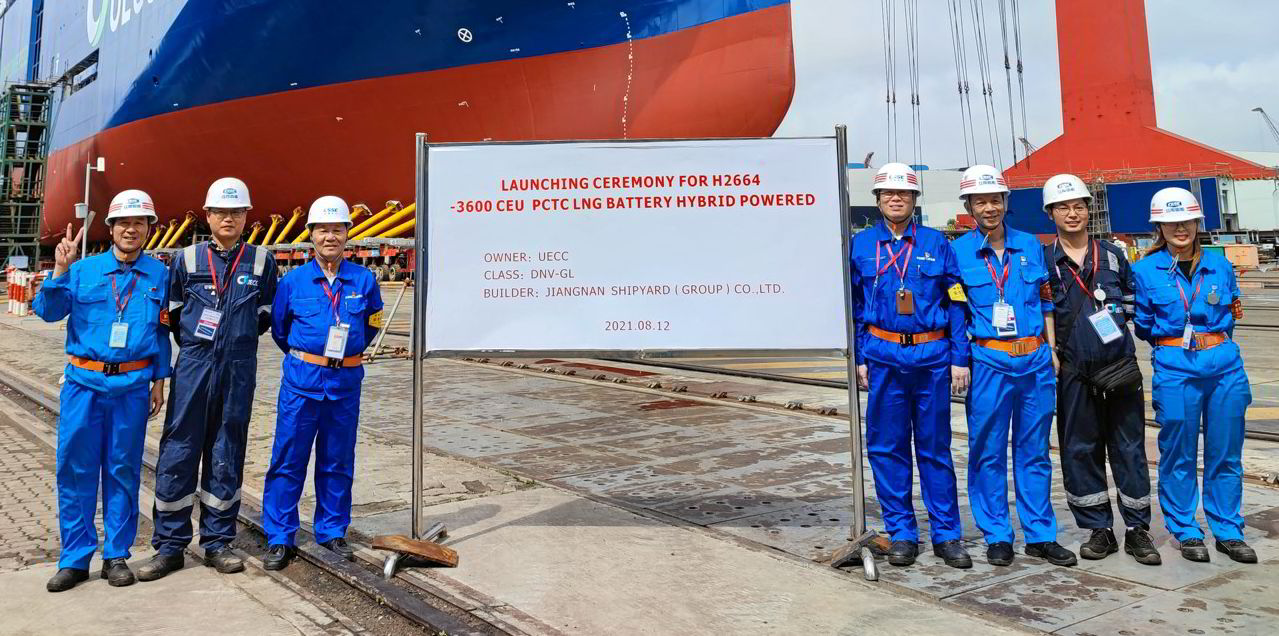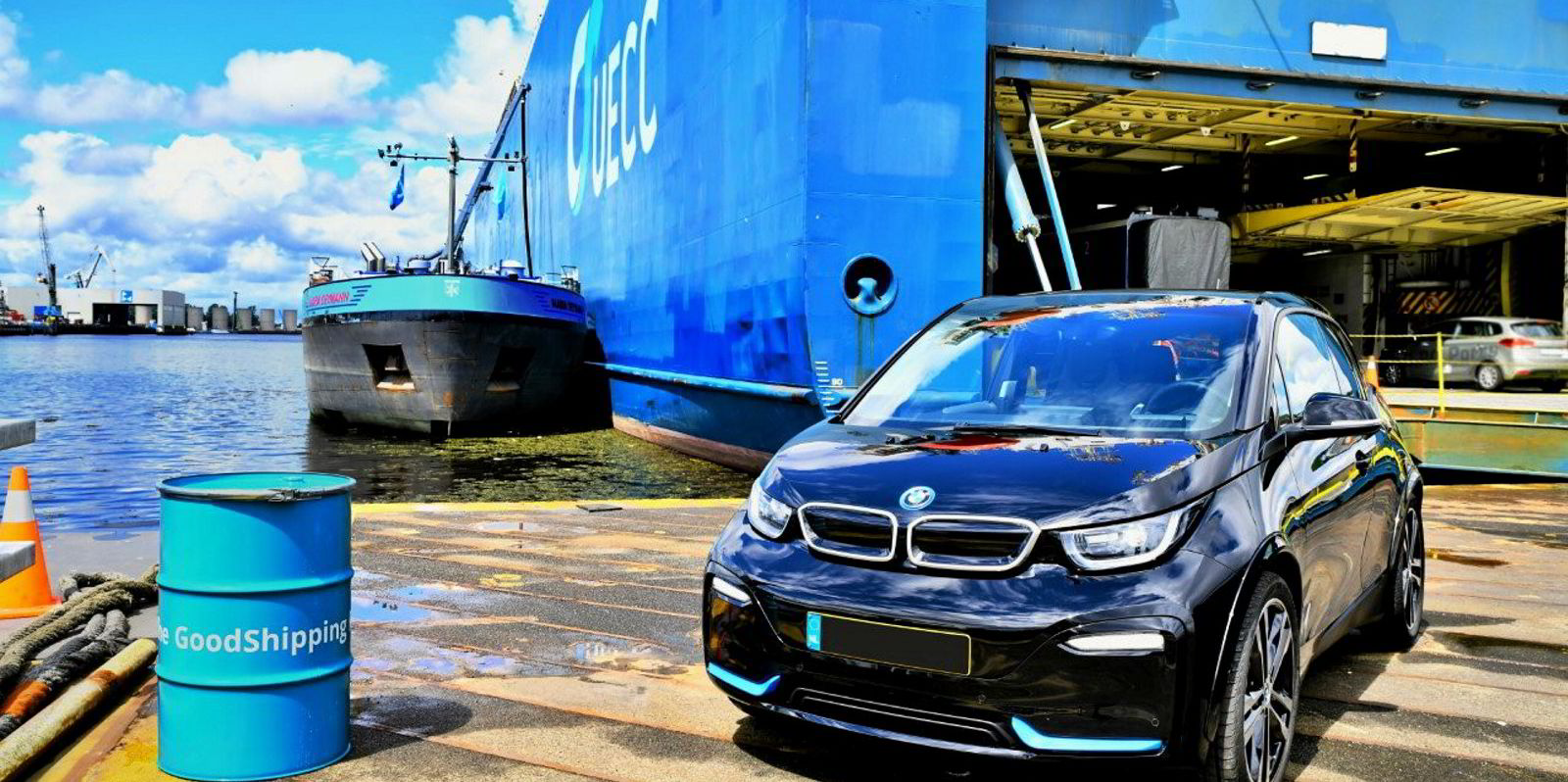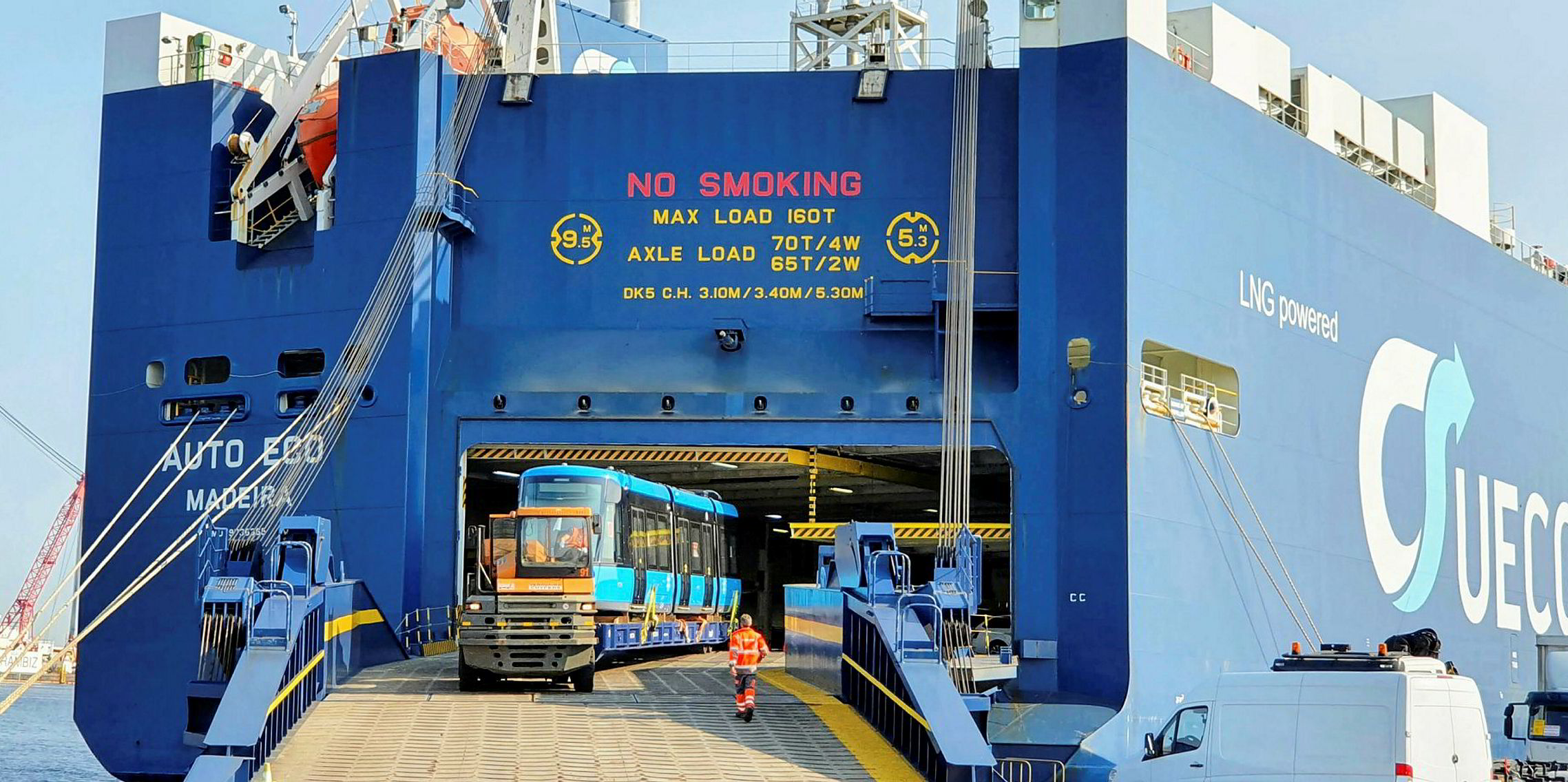UECC, the European ro-ro specialist, has overcome Covid-19-related restrictions to launch the second of its three LNG-fuelled, battery hybrid pure car/truck carriers in China.
The company, a joint venture between Japan's NYK Line and Sweden's Wallenius Lines, is building the three PCTCs at Jiangnan Shipyard at a cost of around $50m per ship.
Hull No H2664 hit the water in a launch ceremony at the Shanghai yard on 16 August and is due for final delivery along with the third vessel in the first half of 2022.
UECC said the first vessel in the series, which was launched earlier this year, is set to be delivered later this autumn after final commissioning.
The company said it had to “overcome manpower and logistical challenges” due to the Covid-19 pandemic to maintain the delivery schedule.
UECC’s head of ship management and newbuilding, Jan Thore Fos, said the programme has faced “significant logistical hurdles” due to lockdown and travel restrictions.
He said this had led to difficulties in procuring equipment from global suppliers and hit manpower capacity constraints for construction work, which requires hundreds of workers.
“The newbuilds were contracted in 2019 just before the pandemic broke out so fortunately, we had equipment vendors in place, but the main challenge has been getting service engineers into China,” Foss said.
“We were initially forced to set up a temporary site team comprising solely Chinese nationals to get the newbuild project moving as flights into the country were cancelled.”
He said the project has also required the use of digital tools such as conferencing apps to allow remote supervision.
“The yard has, though, performed exceptionally well to reallocate labour resources to maintain progress on the project,” he said.
Once delivered, the newbuild trio will give UECC five “eco-friendly” PCTCs out of its 17-vessel fleet.
UECC said the use of a battery hybrid solution will enable it to exceed the International Maritime Organization's target to reduce carbon intensity by at least 40% from 2008 levels within 2030.
Emissions of CO2 will be reduced by around 25%, SOx and particulate matter by 90% and NOx by 85% from the use of LNG, while the newbuildings will also meet the IMO’s Tier 3 NOx emissions limitations for the North Sea and Baltic Sea.






